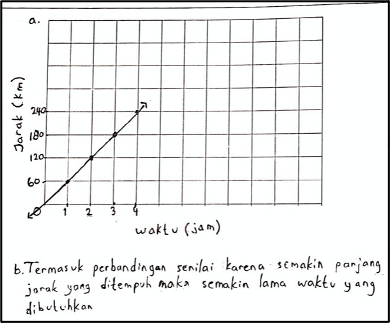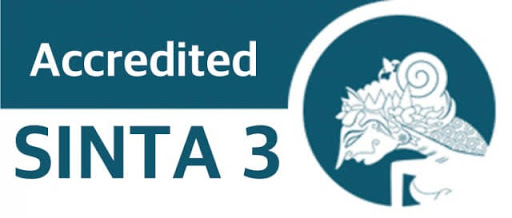Analyzing students’ mathematical communication skills based on their self-efficacy during the Covid-19 pandemic
DOI:
https://doi.org/10.12928/ijei.v3i1.6171Keywords:
covid-19 pandemic, mathematical communication, self-efficacyAbstract
This study aims to analyze students' mathematical communication skills based on their self-efficacy during the covid-19 pandemic. The method used is descriptive qualitative. The population was VII grade students of SMP Negeri 1 Bantul. The purposive sampling technique was used to select samples. The subject was grouped based on their self-efficacy with high, medium, and low categories to be tested and interviewed about their mathematical communication skills. The instrument in this study was a self-efficacy questionnaire, a test of mathematical communication skills, and an interview guideline. The triangulation technique was carried out by comparing the mathematical communication skills test results with the interview. The result of mathematical communication skills during the Covid-19 pandemic are not in line with their level of self-efficacy. High self-efficacy does not necessarily make students have high mathematical communication skills. The factor causing the misalignment is the fact that the online learning process carried out during the Covid-19 pandemic does not enough facilitate students to hone their mathematical communication skills, both oral and written.
References
Azwar, S. (2012). Metode penelitian. Yogyakarta: Pustaka Pelajar.
Buhaerah, B., Jusoff, K., & Nasir, M. (2022). Junior High School Students’ Mathematical Communication in the Written Answers Problem. Kreano, Jurnal Matematika Kreatif-Inovatif, 13(1), 14-32.
Fitriani, R. N., & Pujiastuti, H. (2021). Pengaruh self-efficacy terhadap hasil belajar matematika. Junal Cendekia: Jurnal Pendidikan Matematika, 5(3), 2793-2801.
Hutapea, N. M., & Saragih, S. (2019). Improving mathematical communication skills of SMP students through contextual learning. In Journal of Physics: Conference Series (Vol. 1351, No. 1, p. 012067). IOP Publishing.
MOEC. (2014). Peraturan Menteri Pendidikan dan Kebudayaan Nomor 58 Tahun 2014 tentang Kurikulum 2013 Sekolah Menengah Pertama/Madrasah Tsanawiyah. Indonesian Ministry of Education and Culture.
NCTM. (2000). Principles and standards for school mathematics. National Council of Teachers of Mathematics.
Nurjanah, R., & Jusra, H. (2022). An Analysis of Senior High School Students' Mathematical Communication Ability Based on Self-Efficacy and Gender. Indonesian Journal of Science and Mathematics Education, 5(2), 238-249.
Peciuliauskiene, P., Tamoliune, G., & Trepule, E. (2022). Exploring the roles of information search and information evaluation literacy and pre-service teachers’ ICT self-efficacy in teaching. International Journal of Educational Technology in Higher Education, 19(1), 1-19.
Ramadhani, R., & Siregar, R. F. (2021). Analisis self efficacy matematika siswa terhadap pembelajaran daring pada masa pandemi COVID-19. Jurnal Ilmiah MAJU, 8(2), 367-375.
Saputra, M. F. A., Isnarto, I., & Hartono, H. (2021). Students' Mathematical Communication Skills based on AQ in Discovery Learning Model with Realistic Approach. Unnes Journal of Mathematics Education Research, 10(A), 220-231.
Saputra, E., & Zulmaulida, R. (2020). Analisis hubungan self-efficacy dan kemampuan komunikasi matematis siswa. Ar-Riyadhiyyat: Jurnal Pendidikan Matematika, 1(1), 43-47.
Shomad, Z. A., Rahmawati, F., Waluya, B., & Walid. (2022). Analysis of silent students mathematical communication based on mathematics anxiety. In AIP Conference Proceedings (Vol. 2577, No. 1, p. 020060). AIP Publishing LLC.
WHO. (2020). Coronavirus disease 2019 (COVID19) situation report – 84. World Health Organization. DOI: 10.1001/jama.2020.2633

Downloads
Published
How to Cite
Issue
Section
License
Copyright (c) 2022 Nur Solikhah, Vita Istihapsari, Imam Santosa

This work is licensed under a Creative Commons Attribution-ShareAlike 4.0 International License.
Authors who publish with this journal agree to the following terms:
- Authors retain copyright with the work simultaneously licensed under a Creative Commons Attribution License that allows others to share the work with an acknowledgement of the work's authorship and initial publication in this journal.
- Authors are able to enter into separate, additional contractual arrangements for the non-exclusive distribution of the journal's published version of the work (e.g., post it to an institutional repository or publish it in a book), with an acknowledgement of its initial publication in this journal.
- Authors are permitted and encouraged to post their work online (e.g., in institutional repositories or on their website) prior to and during the submission process, as it can lead to productive exchanges, as well as earlier and greater citation of published work (See The Effect of Open Access).




